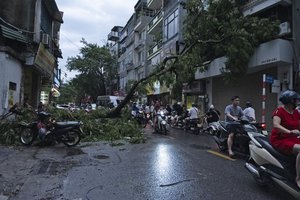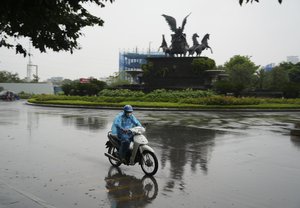Latest News for: ruhr
Edit
Joint Symposium of the University of Tsukuba and Ruhr University (Ruhr-Universität Bochum)
Public Technologies 09 Sep 2024
[...] ... Disclaimer. Ruhr-Universität Bochum published this content on 09 September 2024 and is solely responsible for the information contained therein.
Edit
Why a Spider is Scarier in the Cellar Than in the Therapy Room (Ruhr-Universität Bochum)
Public Technologies 28 Aug 2024
Edit
Ruhr University on its Way to the Top (Ruhr-Universität Bochum)
Public Technologies 27 Aug 2024
) Shanghai Ranking Ruhr University's ranking improved significantly compared to the previous year.
Edit
Ruhr University with Two Renewal Proposals (Ruhr-Universität Bochum)
Public Technologies 22 Aug 2024
) Excellence Strategy In total, the University Alliance Ruhr submits four full proposals for Clusters of Excellence.
Edit
Local Solvation is Decisive for Fluorescence of Biosensors (Ruhr-Universität Bochum)
Public Technologies 12 Aug 2024
Edit
Nurburgring Paddock Explosion Leaves Several Airlifted To Hospital During ADAC Ruhr Cup Practice
Newsweek 02 Aug 2024
An explosion in the paddock area at the Nurburgring during a practice session for the ADAC Ruhr Cup led to the abrupt halt ....
Edit
Making Electrolysis Cost-Efficient and Scalable (Ruhr-Universität Bochum)
Public Technologies 31 Jul 2024
Edit
Rhine-Ruhr 2025 World Games: Countdown begins
Inside The Games 16 Jul 2024
In just 365 days, the Rhine-Ruhr 2025 FISU World University Games will commence, starting on 16 July, 2025 ... Rhine-Ruhr 2025 will take inspiration from Paris 2024. RHINE-RUHR 2025 ... There is just one year before the Rhine-Ruhr World Games in 2025.
Edit
Why Pain Takes the Fast Lane during Learning (Ruhr-Universität Bochum)
Public Technologies 15 Jul 2024
Edit
WORLDFACTORY Hosts Event for International Start-up Competition (Ruhr-Universität Bochum)
Public Technologies 08 Jul 2024
Edit
“The Term ‘Genocide’ Has Become a Burden for Lawyers” (Ruhr-Universität Bochum)
Public Technologies 04 Jul 2024
[...] ... Disclaimer. Ruhr-Universität Bochum published this content on 04 July 2024 and is solely responsible for the information contained therein.
Edit
International collaboration Lays the Foundation for AI for Materials (Ruhr-Universität Bochum)
Public Technologies 28 Jun 2024
Edit
EURO 2024: Germany’s Rhine-Ruhr Region Shows How A Single City Can Host A Tournament
Forbes 21 Jun 2024
Four of Germany's host cities for the UEFA 2024 European Championship are in the same urban area, making it possible to watch four games in four days in four venues ... .
- 1
- 2
- Next page »


















